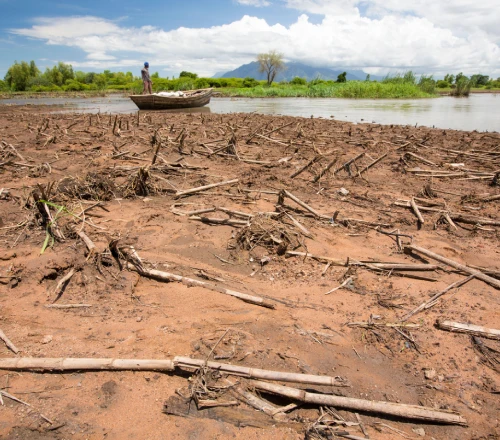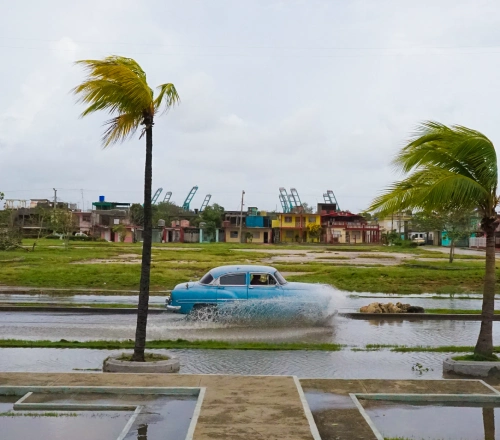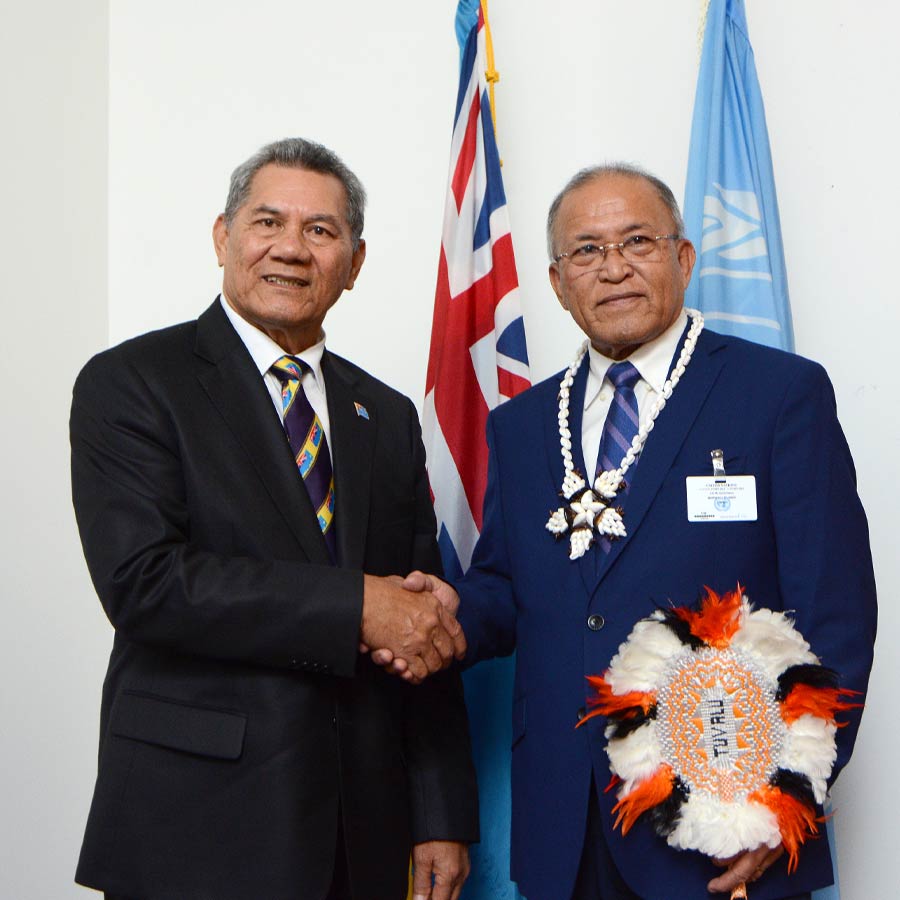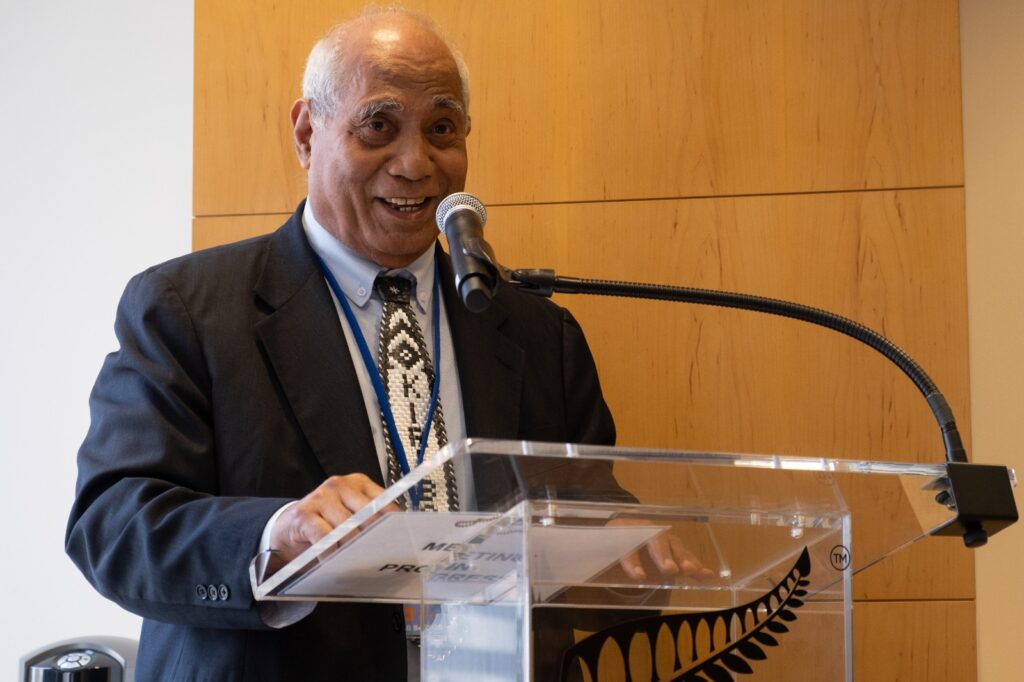New York, 5 June, 2024 – Today, the Global Centre for Climate Mobility (GCCM) co-hosted a pivotal event for Permanent Representatives to the United Nations featuring a keynote presentation by NASA on its latest Technical Assessment Report on Sea-Level Rise and its impact on Kiribati. The event was organized with the Permanent Mission of Kiribati to the United Nations, the Permanent Mission of the United States to the United Nations, and the Permanent Mission of New Zealand to the United Nations.
[Insert Quote] said H.E. Teburoro Tito, Permanent Repr“There is a need to plan and ensure that people are prepared before the sea level rises by 30 cm,” said H.E. Teburoro Tito, Permanent Representative of the Republic of Kiribati to the UN. “Villages have been relocated, roads are being lost, facilities are being moved, and in some areas, fresh drinking water is becoming brackish. Rural crops are dying due to salinization. These are just some of the effects of sea-level rise in Kiribati.”
Kiribati lies in the middle of the Pacific Ocean, north of New Zealand and southwest of Hawaii. Of its 33 populated islands, none rise more than four meters above sea level at their highest point, making it one of the most vulnerable countries in the world to climate change. Kiribati is confronted with urgent and existential threats due to the climate crisis, which jeopardizes its social, economic, and cultural fabric.
“Many countries are on the front line of sea-level rise but Kiribati, Tuvalu, Marshall Islands, and the Maldives are at the front of the line of the frontline,” said H.E. Carolyn Schwalger, Permanent Representative of New Zealand to the UN. “That’s why it’s crucial to have engagement from Heads of State and Government at September’s UN High-Level Meeting to Address Existential Threats Posed by Sea-Level Rise.”
The event underscored the urgent need for global collaboration and scientific innovation to address the existential threats posed by sea-level rise. With contributions from NASA experts, participants gained a deeper understanding of the latest research and strategies to mitigate the impacts on vulnerable communities.
The event featured a keynote presentation by NASA on its latest Technical Assessment Report on Sea-Level Rise and its impact on Kiribati. This presentation was part of NASA’s ongoing partnership with the Rising Nations Initiative (RNI).
The Global Centre for Climate Mobility (GCCM) facilitates the Rising Nations Initiative (RNI), a UN Member States-led effort, to support Pacific Atoll countries, including Kiribati. This initiative aims to protect their sovereignty and statehood, and to safeguard the rights, heritage, and cultural legacy of affected populations in the face of the existential threats posed by climate change.
“The heritage, culture, and livelihoods of Kiribati’s people are at stake,” said Kamal Amakrane, Managing Director of the Global Centre for Climate Mobility. “Science warns that if we fail to act decisively now, climate change will cause devastating impacts within our own lifetimes. It’s imperative to act decisively to address these existential threats today.”
About The Global Centre for Climate Mobility
The Global Centre for Climate Mobility (GCCM) is a global partnership at the nexus of climate action and human mobility to enable positive adaptation journeys for people and communities at the frontline of the climate crisis. It is hosted at the UN Office for Project Services (UNOPS) and advanced by champion countries, UN Agencies, the World Bank, and regional organizations with support from philanthropy, civil society organizations and research partners.
For more information please contact:
David Lonnberg
E: lonnberg@climatemobility.org
M: +1 347 836 2121
Global Centre for Climate Mobility









